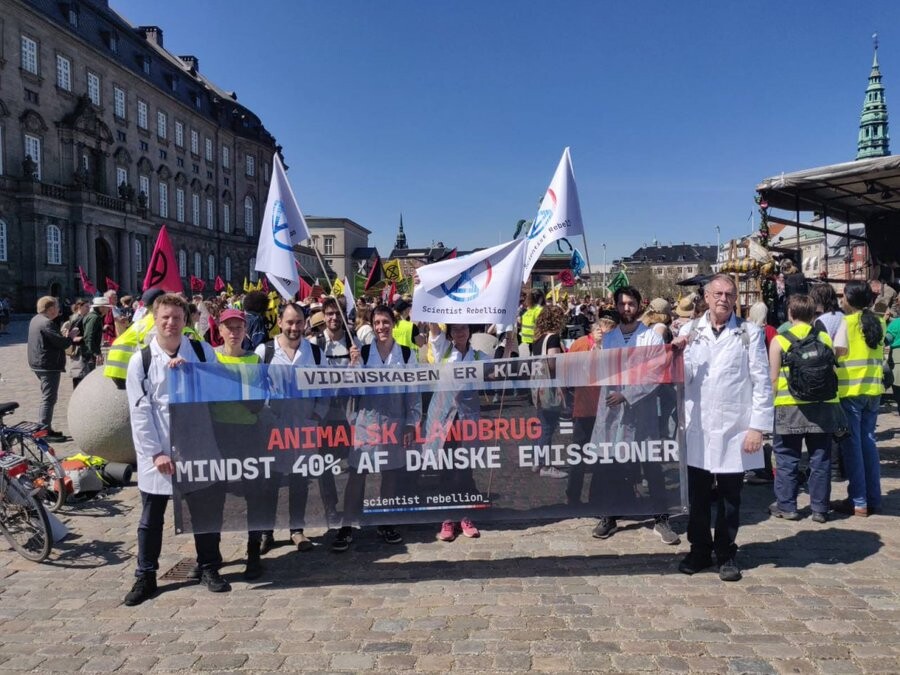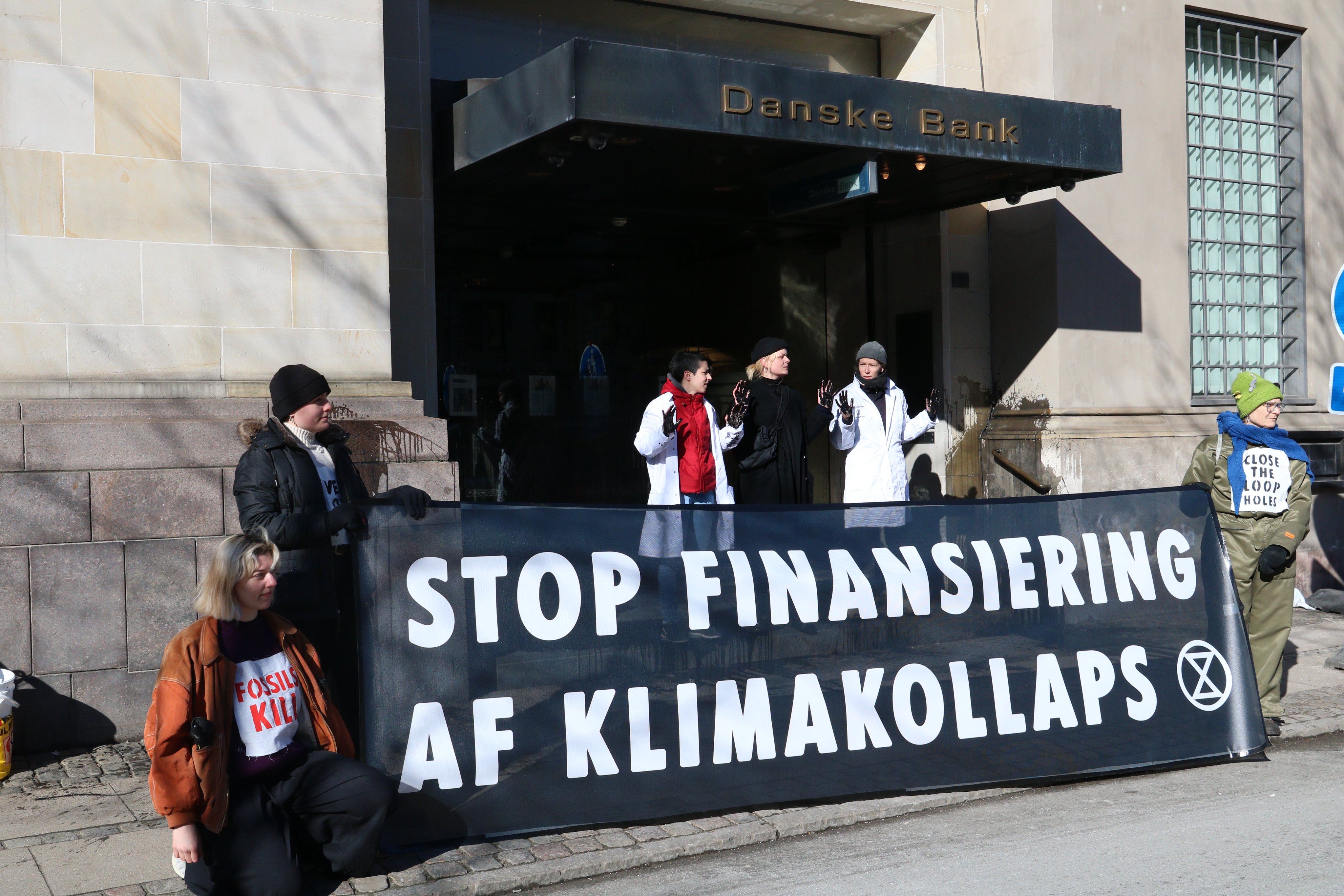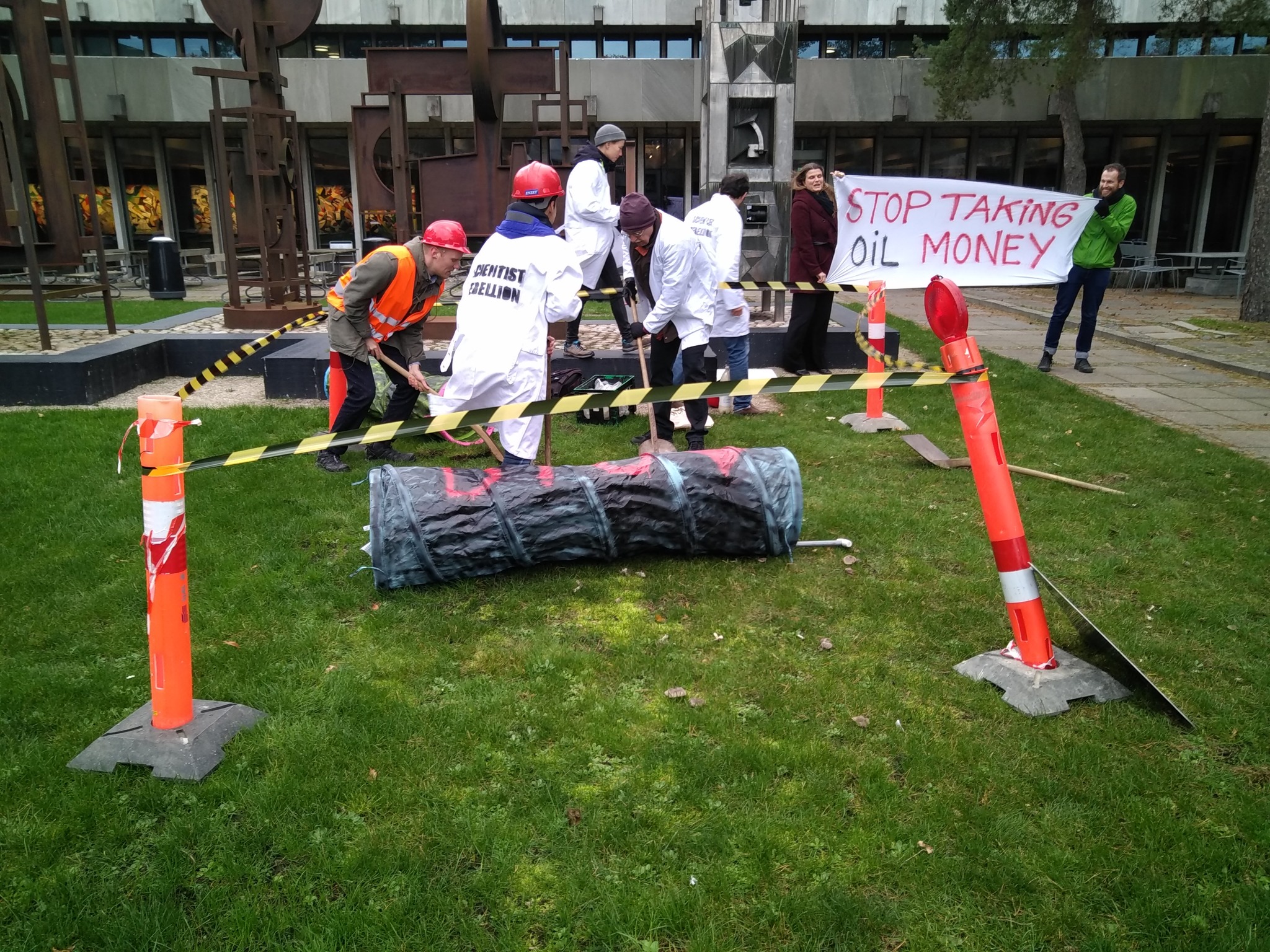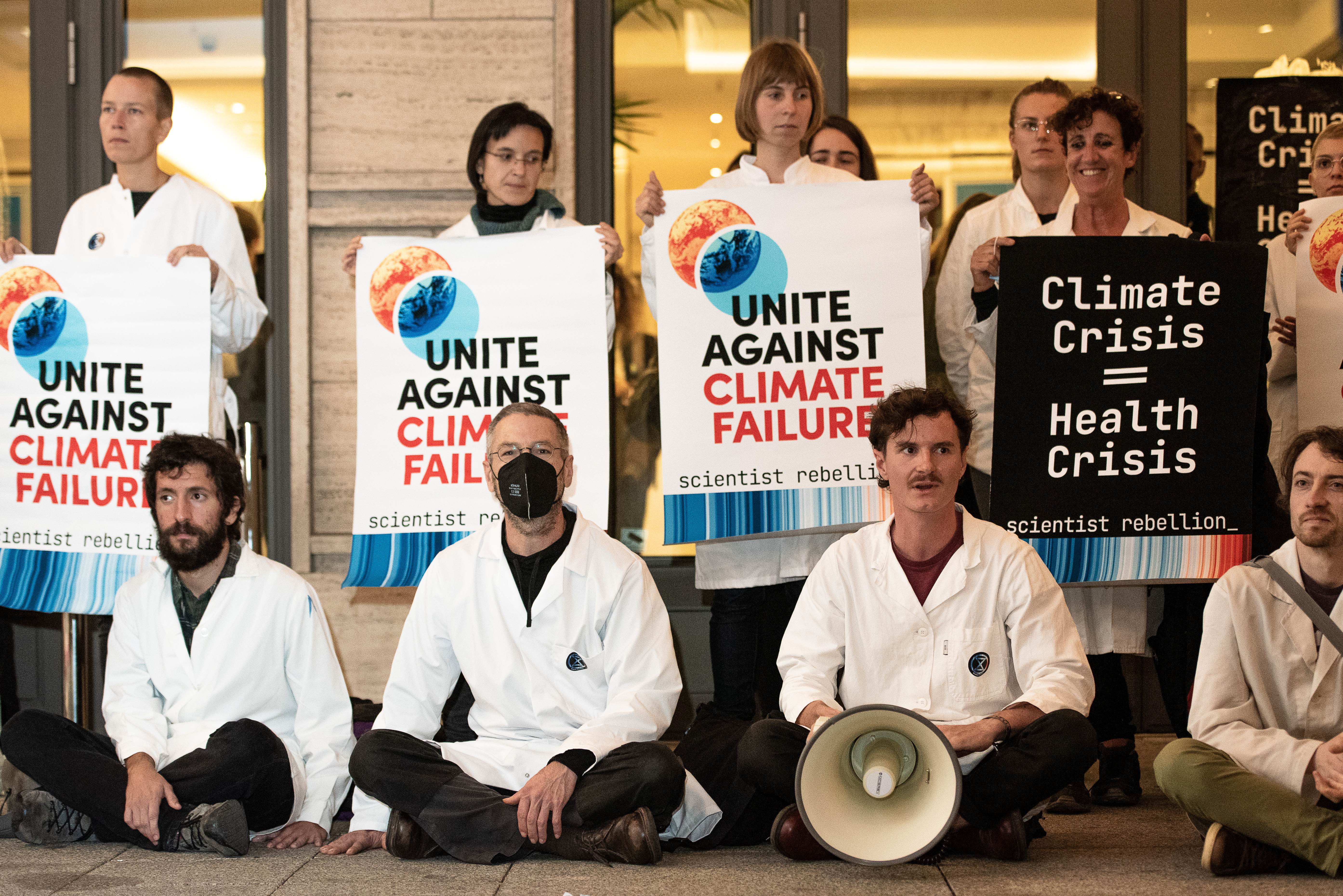
Befri Jorden
Denmark is failing to transition to sustainable food production systems. Agriculture and especially livestock farming is responsible for almost 27% of Danish greenhouse gas emissions, and 95% of its nitrate emissions. Feasible transition scenarios to fulfill Denmark’s international commitments involve our government immediately downscaling intensive animal farming and abandoning their over-reliance on techno-fixes to instead focus on sustainable long-term solutions.
On April 28th, 2023, we joined a city-wide protest in Copenhagen, demanding that Denmark keep its promises of having 30% of its territory as protected natural areas, stop new loans for industrial animal agriculture and finally ban pesticides. The event was named “Befri Jorden” (“Liberate the Earth”) and included direct action by citizens from all over Denmark. It was organized by civil society organizations including Extinct Rebellion, Scientist Rebellion, Greenpeace, Landsforeningen mod Svinefabrikker, Global Aktion and many others.




